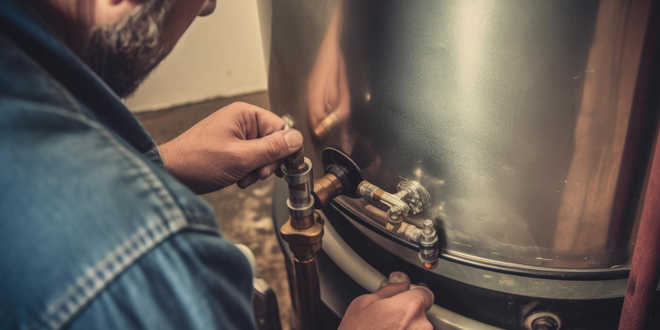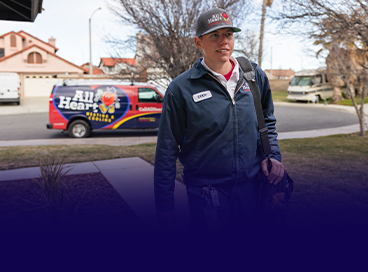
Are you a Lancaster, CA, homeowner planning to buy a new boiler? This article is your go-to resource, providing valuable tips on energy efficiency, cost-effectiveness, and system longevity. Make a well-informed choice for your home’s heating needs with our expert advice.
Essential Factors to Consider Before Buying a New Boiler in Lancaster, CA
Understanding Your Heating Needs
Before diving into the boiler market, assess your home’s heating requirements. Lancaster’s unique climate demands a system that can handle both mild and cooler temperatures efficiently. Consider the size of your home and insulation quality, as these factors influence the type of boiler and its capacity.
Choosing the Right Type of Boiler
Boilers come in various types, each with its advantages. Conventional boilers are suitable for larger homes with multiple bathrooms, providing a steady supply of hot water. Combi boilers, ideal for smaller households, offer space-saving solutions and instant hot water. System boilers work well for homes with higher hot water demand. Additionally, oil boilers are an important consideration, especially for homes without access to natural gas lines. They can be a reliable and efficient heating solution, offering an alternative for homeowners in Lancaster, CA, where gas availability might be limited.
Energy Efficiency
In Lancaster, CA, prioritizing energy efficiency in your new boiler is essential. Modern boilers are rated for their efficiency, with many achieving high Annual Fuel Utilization Efficiency (AFUE) ratings. This rating reflects the percentage of energy converted into heating over a year, making it a key factor in evaluating a boiler’s performance. Look for models with high AFUE ratings and ENERGY STAR® certification to ensure lower energy bills and reduced environmental impact. These criteria set by the U.S. Environmental Protection Agency indicate superior efficiency and long-term savings.
Boiler Cost and Budgeting
The upfront cost of a new boiler can vary significantly based on type, size, and features. It’s crucial to balance the initial investment with long-term savings. More efficient boilers may cost more initially but can lead to substantial savings on your energy bills. Remember to factor in installation costs and potential rebates or incentives available in Lancaster, CA.
Installation and Professional Services
Professional installation is key to ensuring your boiler operates safely and efficiently. In Lancaster, CA, it’s important to choose a licensed and experienced HVAC technician. They can guide you through local regulations and ensure your installation complies with building codes. Regular maintenance is also crucial for optimal performance and longevity of your boiler.
Local Climate Considerations
Lancaster’s climate can influence your boiler choice. Ensure the system you select is robust enough to handle the region’s temperature fluctuations. Discuss with your technician about models best suited for local weather patterns.
Long-Term Reliability and Warranties
Invest in a boiler from a reputable manufacturer known for durability and reliability. Check the warranty terms to understand what’s covered and for how long, as this can offer peace of mind and protection against unexpected repair costs.
Eco-Friendly Options
With increasing environmental awareness, consider eco-friendly boilers that utilize renewable energy sources or have lower emissions. These options not only benefit the environment but may also offer long-term cost savings.
By considering these factors, homeowners in Lancaster, CA, can make an informed and efficient decision when purchasing a new boiler. Remember, a boiler is a long-term investment that affects your home’s comfort and energy consumption, so choose wisely!
Understanding the Average Boiler Replacement Cost
When considering the installation of a new boiler, one of the most crucial factors is understanding the associated costs. The total expense can vary widely depending on several key elements.
Factors Influencing the Cost
Type of Boiler
Combi Boilers: Typically more affordable, suitable for smaller homes without the need for a separate water tank.
System Boilers: Mid-range in price, require a cylinder for storing hot water.
Conventional Boilers: Often the most expensive, requiring both a cylinder and a water tank, best for larger homes.
Boiler Capacity and Size
The size, measured in BTUs (British Thermal Units), directly influences the cost. Larger homes requiring more heating will need boilers with higher BTU ratings, which are usually more expensive.
Brand and Quality
Premium brands often command higher prices due to their reputation for reliability and advanced features. However, mid-range brands can offer good quality at a more affordable price.
Energy Efficiency
High-efficiency boilers are more costly upfront but can lead to significant energy savings over time, making them a cost-effective choice in the long run.
Installation Complexity
The cost can increase if the installation is complex, such as when switching from one type of boiler system to another or if additional piping is needed.
Geographical Location
Installation costs can vary based on where you live. Certain regions may have higher labor costs, influencing the overall price.
Average Boiler Prices
The average cost to install a new boiler typically ranges between $3,500 and $7,800. This range can fluctuate based on the factors mentioned above.
For standard mid-efficiency boilers, prices might range from $2,500 to $4,000, while a high-efficiency boiler can cost between $5,000 and $10,000 or more, especially for larger homes or more complex installations.
Additional Boiler Installation Costs to Consider
Removal and Disposal of Old Boiler
If replacing an old system, consider the cost of safely removing and disposing of the old boiler.
Upgrading the Heating System
Additional costs may arise if there is a need to upgrade radiators, pipes, or thermostats to match the new boiler’s functionality.
Ongoing Maintenance
Regular maintenance is crucial for the longevity of the boiler and may incur additional costs over time.
Possible Rebates and Incentives
Some regions offer rebates for installing energy-efficient systems. These can offset the initial cost, so it’s worth investigating local offers.
The cost of installing a new boiler is a significant investment, and prices can vary widely based on your specific needs and circumstances. It’s essential to consider not just the upfront cost but also long-term energy savings, maintenance, and the potential increase in property value. Consulting with a professional HVAC contractor can provide a more accurate estimate tailored to your specific situation and needs.
Can I Install a New Boiler Myself? Understanding the Complexities and Legalities
The installation of a new boiler is a complex and critical task that involves not just technical know-how but also an understanding of safety protocols and legal requirements. While it’s tempting to consider DIY installation to save costs, there are several important aspects to consider.
Technical Expertise and Safety
Complex Process
Installing a boiler involves intricate knowledge of plumbing, gas lines (for gas boilers), electrical systems, and heating systems. It requires precise calibration to ensure efficient and safe operation.
Safety Risks
Incorrect installation can lead to serious safety hazards, including gas leaks, carbon monoxide poisoning, fire hazards, and water damage.
Quality and Efficiency
Professional installers ensure that the boiler operates at peak efficiency. A poorly installed boiler can be less efficient, leading to higher energy bills and potential malfunctions.
Legal and Compliance Issues
Building Codes and Regulations
Most regions have strict building codes and regulations governing the installation of heating systems. These codes are designed to ensure safety and efficiency.
Permits
Many local authorities require permits for the installation of a new boiler. These permits ensure that the installation is inspected and meets all safety standards.
Certification Requirements
In many places, only certified professionals are legally allowed to install boilers, especially when it involves gas or electrical work.
Insurance Implications
DIY installation may void warranties and can affect your home insurance coverage. Many insurance policies require that such installations be carried out by licensed professionals.
Potential Long-Term Impacts
Warranty Concerns
Manufacturers often require professional installation as a condition of their warranty. DIY installation can nullify this warranty.
Resale Value and Inspections
When selling your home, a professionally installed boiler can be a selling point. Conversely, a DIY installation might raise concerns during home inspections.
When to Call a Professional
Given the complexity, safety risks, and legal implications, boiler installation is typically a job for qualified professionals. They have the necessary training, experience, tools, and understanding of local laws and regulations.
A professional installation ensures that your boiler operates safely and efficiently and complies with all local building codes and regulations. It also maintains the manufacturer’s warranty and can positively impact your home insurance and property value.
While installing a new boiler yourself may seem like a way to reduce costs, it comes with significant risks and potential long-term consequences. Considering the technical complexity, safety concerns, legal requirements, and the importance of ensuring efficient operation, it’s advisable to entrust this job to a certified professional. This not only ensures peace of mind but also safeguards the investment in your home and personal safety.
Frequently Asked Questions About Boiler Installation
1. Do you usually have a plumber install a boiler?
Yes, typically, a qualified plumber or a heating engineer installs a boiler. These professionals have the necessary expertise in plumbing, heating systems, and, if applicable, gas connections. It’s important to ensure that the installer is licensed and certified, especially for gas boiler installations, as this involves dealing with potentially hazardous materials.
2. Do I need a new gas pipe to install a new boiler?
It depends on several factors. The requirement for a new gas pipe depends on the capacity of your existing gas line and the demands of the new boiler. If the new boiler has a higher BTU output than your previous one, your existing gas pipe might not be adequate. A qualified professional can assess your current setup and advise whether a new gas pipe is needed to operate the new boiler safely and efficiently.
3. Does a boiler replace a water heater?
Not necessarily. Traditional boilers are primarily designed for heating the home. However, combi boilers can provide both home heating and hot water without the need for a separate water heater. If you’re switching to a combi boiler, it can replace your water heater. But if you’re installing a conventional or system boiler, you’ll still need a separate water heater.
4. How long does it take to install a new boiler?
The installation time can vary based on the type of boiler and the complexity of the job. Typically, replacing an old boiler with a new one of the same type can take about 1-2 days. If you’re changing the type of boiler or if additional work, like new pipework, is needed, it might take longer.
5. Can I install a boiler in any room of my house?
Generally, boilers can be installed in various locations like kitchens, utility rooms, or basements. However, there are safety regulations to consider, such as ventilation requirements and proximity to combustible materials. A professional installer can advise on the best location in your home.
6. How often does a boiler need maintenance?
Regular maintenance is crucial for the efficient and safe operation of your boiler. It’s recommended to have your boiler serviced annually by a qualified technician. This helps in maintaining efficiency, prolonging its lifespan, and identifying potential issues before they turn into costly repairs.
7. Are there any grants or incentives available for boiler installation?
In some regions, there are grants, rebates, or incentives for installing energy-efficient traditional or electric boilers. These can vary based on your location and the type of boiler you choose. It’s advisable to research local schemes or ask your installer for information on available financial assistance.
8. What is the lifespan of a new boiler?
The average lifespan of a boiler is around 10-15 years, though this can vary based on the type of boiler, usage, and how well it is maintained. Regular servicing and proper installation can help maximize your boiler’s lifespan.
Ready for Cozy Comfort? 🏡🌟
Elevate your home’s warmth and efficiency with All Heart Heating & Cooling. Our expert team ensures a seamless boiler installation experience tailored to your needs. Embrace the comfort and savings a new boiler brings. Contact us today – let’s make your home a haven of warmth and efficiency in every season!





